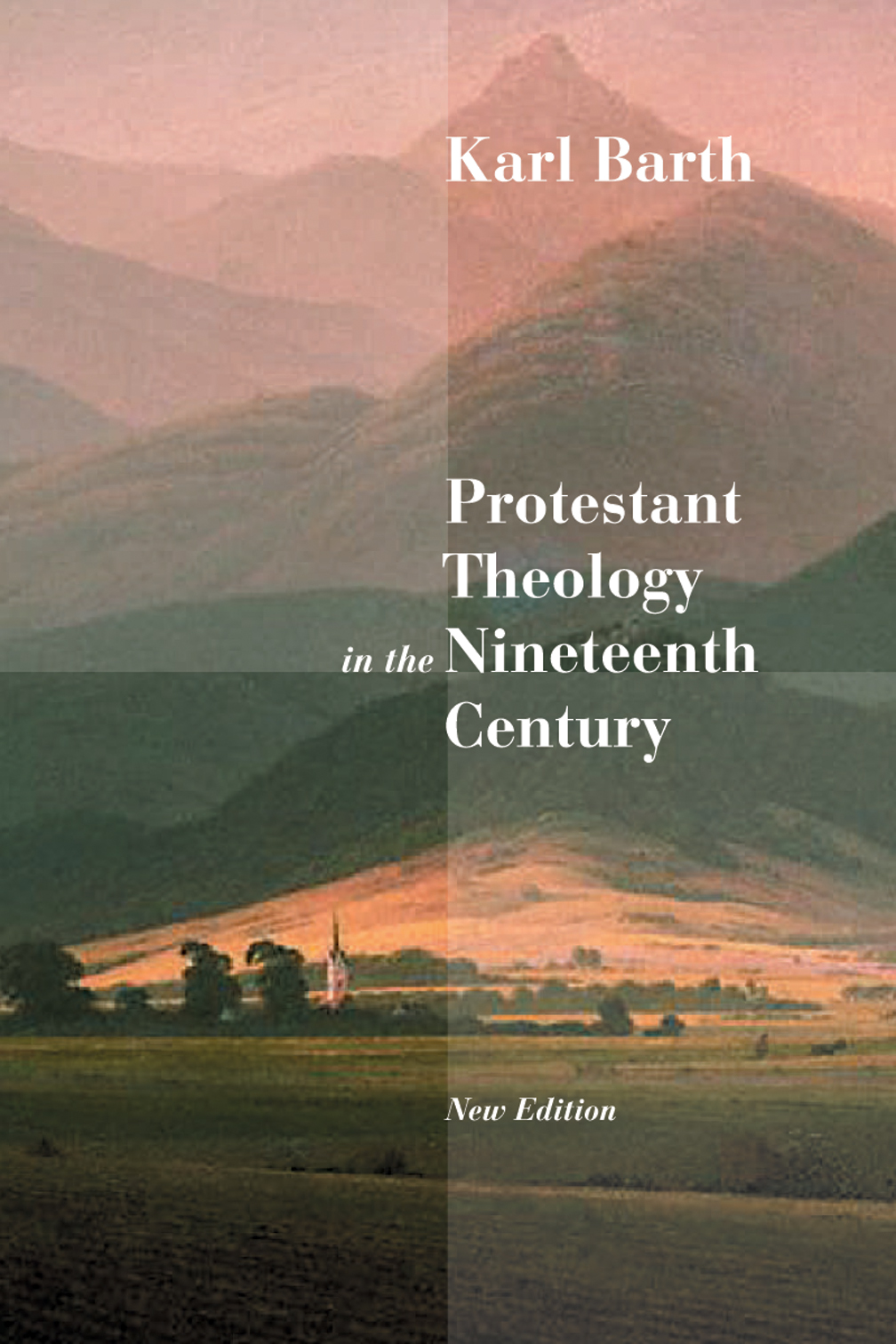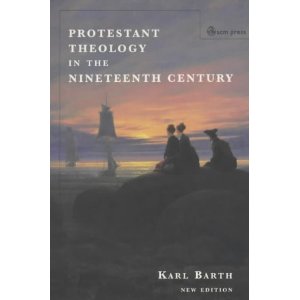 Karl Barth's "Protestant Theology in the Nineteenth Century: It's background and history" is a history book about the liberal protestant theologians from 1700-1900 AD written by an expert of this era including the most influential liberal Protestant theologians of the Enlightenment: Rousseau, Lessing, Kant, Herder, Novalis, Hegel, Schleiermacher, Wegscheider, De Wette, Marheineke, Baur, Tholuck, Menken, Feuerbach, Strauss, Schweizer, Dorner, Muller, Rothe, Hofmann, Beck, Vilmar, Kohlbrugge, Blumhardt, and Ritschl (all with dedicated chapters). And many others appear throughout without explicit chapters, most notably Kierkegaard, Goethe, Louis XIV, and others. This isn't a history of all Protestant theologians, but those in the long chain of Pietism and the Enlightenment.
Karl Barth's "Protestant Theology in the Nineteenth Century: It's background and history" is a history book about the liberal protestant theologians from 1700-1900 AD written by an expert of this era including the most influential liberal Protestant theologians of the Enlightenment: Rousseau, Lessing, Kant, Herder, Novalis, Hegel, Schleiermacher, Wegscheider, De Wette, Marheineke, Baur, Tholuck, Menken, Feuerbach, Strauss, Schweizer, Dorner, Muller, Rothe, Hofmann, Beck, Vilmar, Kohlbrugge, Blumhardt, and Ritschl (all with dedicated chapters). And many others appear throughout without explicit chapters, most notably Kierkegaard, Goethe, Louis XIV, and others. This isn't a history of all Protestant theologians, but those in the long chain of Pietism and the Enlightenment.
In this new edition, the prolegomena has been translated into English and included for the first time. To Barth's chagrin, the extended introduction to this history were omitted in the first translation of the book from German, and the truncated volume appear more as a collection of encyclopedia entries on theologians from Rousseau to Ritschl. In this new English edition, the long introduction has been restored which includes the following sections to complete Barth's history: 1) The Task of a History of Modern Protestant Theology, 2) Man in the Eighteenth Century, 3) The Problem of Theologin in the Eighteenth Century and 4) Protestant Theology in the Eighteenth Century, and a new preface by the translator Colin Gunton (at King's College, London 2001).
Gunton describes this history best using Barth's own words in the preface:
Gunton says, "However, the greatest tribute to Barth's lifelong intellectual opponent is the part he plays in the book as a whole. When the full translation of this work was published in 1972, it became apparent that it represented far more than an introduction followed by a series of treatments of different theologians in longer and shorter chapters. The spirit of Schleiermacher stalks every page, and if there is an underlying thesis it is that so far as its subject matter is concerned, all roads lead to and from Schleiermacher, and these roads are mostly blind alleys." (pg xv).
Barth's history is not exhaustive or event as Gunton's quote indicated. Some notable people are missing sections, such Søren Kierkegaard (1813-1855) who is oddly omitted.
Gunton continues to say, "The dominance of Schleiermacher provides furthur illumination of the nature of the book and one reason at any rate for what appears to be a surprising omission. Of Kierkegaard Barth famously said that his was a school in which one must learn but neither remain nor return, in some contrasts to his judgment of Schleiermacher. Is that why there is no chapter on him? I suspect that the reasons are rather complex, but centre on the fact that there is a respect in which Kierkegaard did not belong to the century, and certainly has little to offer to the book's main thesis about Schleiermacher and his dominance." (Gunton, pg xvi.)
I agree with Gunton that this is a history of the era Schleiermacher built, and Barth confirms it in the introduction to the chapter on Schleiermacher at the turning point of the book, where Schleiermacher is laid a cornerstone to the book:
"These prophecies have been fulfilled. The first place in history of the theology of the most recent times belongs and will always belong to Schleiermacher, and he has no rival. It has often been pointed out that Schleiermacher did not found any school. This assertion can be robbed of some of its force by mention of the names of his successors in Berlin, August Twesten, Karl Immanuel Nitzsch of Breman, and Alexander Schweizer of Zurich. But they are correct in so far as Schleiermacher's significance lies byond these beginnings of a school in his name. What he said of Frederick the Great in his Academy address entitled 'What goes to make a great man' applies also to himself: 'He did not found a school, but an era.' The man who published an essay in 1907 called Schleiermacher, the Church-father of the Nineteenth Century, was speaking the historical truth." (pg 411).
 Although this is a book about the 19th century, the content is presented in Part 1 (pages 1-410) by extended analysis of the 18th century, and by the time the 19th century is encountered in Part 2 (pages 411-649), the foundation for those subsequent pages have already been laid. So the chapters in Part 2 describe the 19th century by looking backwards on the 18th century.
Although this is a book about the 19th century, the content is presented in Part 1 (pages 1-410) by extended analysis of the 18th century, and by the time the 19th century is encountered in Part 2 (pages 411-649), the foundation for those subsequent pages have already been laid. So the chapters in Part 2 describe the 19th century by looking backwards on the 18th century.
The chapter on Kant was particularly intriguing because Barth include more biographical information on him than most of the other theologians. Kant's biography seems to be the reality of those who live out the Schleiermacher era of thought. Kant is described to join the progression of people until they reach the Church, where Kant would slip away from the crowd, walk around the Church and go home to his private study. (Showing Kant's rejection of the Church). Barth also describes how "Kant was angered by the loud and persistent hymn-singing of the prisoners, which was particularly irksome to him in the summer, when he liked to philosophize with his window open, and complained to the town-president." Interesting how Kant condemn's the prisoner's "hypocracy."
It's impossible to understand Karl Barth without understanding Friedrich Schleiermacher, and this history book is an excellent read and very accessible introduction to the background of the 18th and 19th centuries, and sets the trajectory for the theological problems of the 20th and 21st centuries.
Related: 18th century, 19th century, Albrecht Ritschl, Barth, Baur, Beck, Blumhardt, Book, De Wette, Dorner, Feuerbach, Hegel, Herder, history, Hofmann, Immanuel Kant, Kant, Karl Barth, Kohlbrugge, Lessing, Marheineke, Menken, Muller, Novalis, Protestant Theology, Protestant Theology in the Nineteenth Century: Its Background and History, Review, Rothe, Rousseau, Schleiermacher, Schweizer, Strauss, Tholuck, Vilmar, Wegscheider



September 2nd, 2021 - 12:49
Is this book available anywhere in digital form?